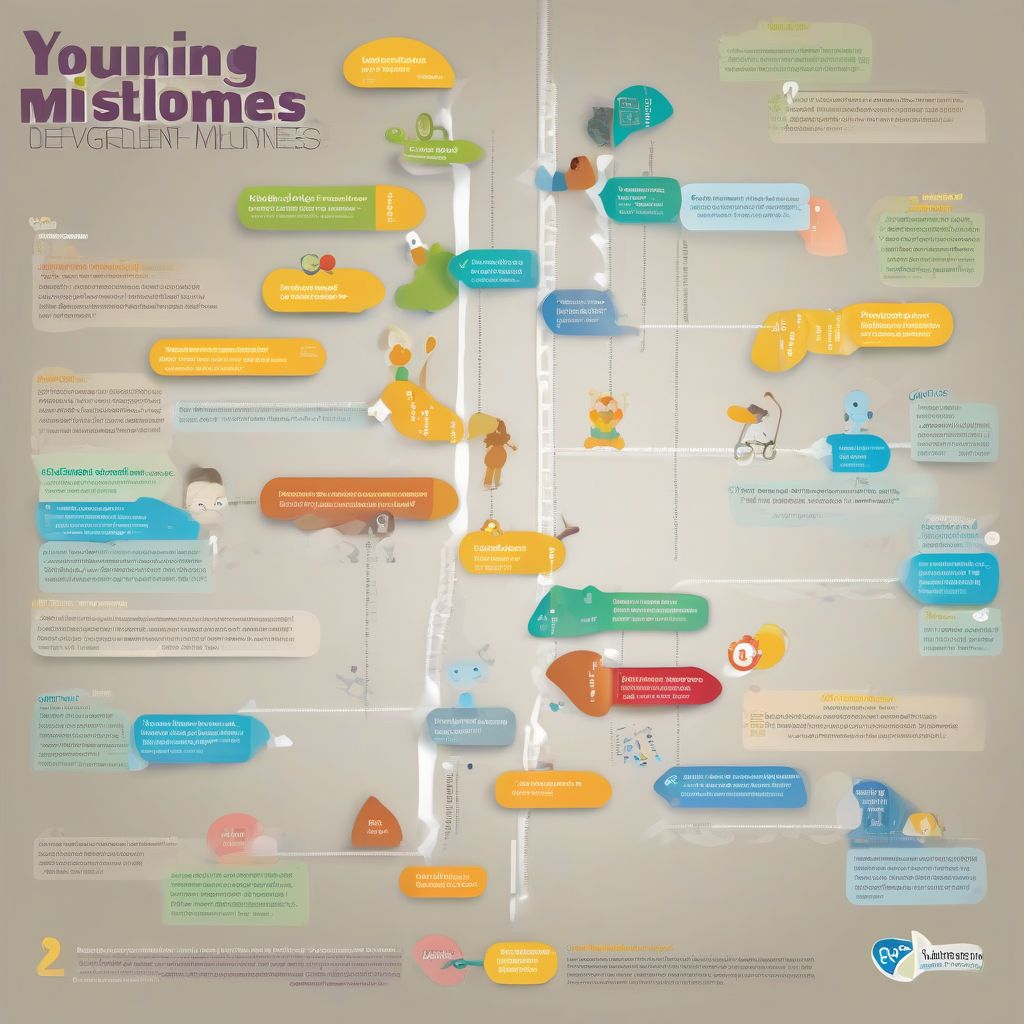Have you ever watched a child excitedly point to an object and exclaim, “Ball!” for the first time? That, my friend, is a simple yet powerful example of a developmental milestone in action. These milestones, from first words to taking those wobbly first steps, are like stepping stones on a child’s path to growth and learning. In the world of early childhood education, understanding these milestones isn’t just important, it’s absolutely essential.
What Exactly are Developmental Milestones?
Developmental milestones are a set of skills or abilities that most children are expected to achieve by a certain age. They act as benchmarks, helping educators and parents track a child’s progress in various areas like:
- Physical Development: Think gross motor skills (walking, jumping, climbing) and fine motor skills (holding a crayon, using scissors).
- Cognitive Development: This encompasses a child’s ability to think, learn, and solve problems. Remember that “Ball!” moment? That’s language development, a key aspect of cognitive growth.
- Social and Emotional Development: How a child interacts with others, manages their emotions, and develops relationships.
- Language and Communication Development: This includes understanding and using language, both spoken and nonverbal (gestures, facial expressions).
Why are Developmental Milestones Crucial in Early Childhood Education?
Think of developmental milestones as a roadmap for early childhood educators. Here’s why they’re so vital:
1. Identifying Individual Needs
Every child is unique and learns at their own pace. Developmental milestones provide a framework to assess where each child is on their developmental journey. This allows educators to:
- Create tailored learning experiences: Activities and lessons can be adapted to meet individual needs, ensuring children are appropriately challenged and supported.
- Identify potential delays early on: Early intervention is key! If a child is struggling to meet certain milestones, educators can work with parents and specialists to address potential developmental concerns.
2. Creating a Developmentally Appropriate Curriculum
Imagine handing a group of toddlers advanced algebra equations (chaos, right?). Developmental milestones guide educators in designing curriculum and selecting activities that are suitable for a child’s age and stage of development. This ensures children are:
- Engaged and motivated: Activities that align with their abilities keep them interested and eager to learn.
- Building on prior skills: Learning becomes a natural progression, with each new skill built upon existing ones.
3. Fostering a Love of Learning
When children are engaged in activities that are “just right” for their developmental level, something magical happens:
- They experience success: Mastering new skills, no matter how small, builds confidence and a positive self-image.
- Learning becomes fun! When children enjoy the learning process, they’re more likely to develop a lifelong love of learning.
4. Supporting Social-Emotional Development
Early childhood education isn’t just about academics. It’s about helping children develop into well-rounded individuals. By understanding social-emotional milestones, educators can:
- Create a nurturing and supportive environment: This allows children to feel safe to explore, learn, and build relationships with their peers.
- Teach crucial social skills: Sharing, taking turns, and resolving conflicts are all vital skills that set the foundation for healthy social interactions.
 Early Childhood Development Milestones
Early Childhood Development Milestones
What Can Parents Do?
Early childhood education is a partnership between parents and educators. Here’s how you can play a vital role:
- Familiarize yourself with developmental milestones: Resources from organizations like the CDC and the American Academy of Pediatrics provide helpful information.
- Provide a stimulating home environment: Engage in conversations, read together, and provide opportunities for play and exploration.
- Celebrate those milestones! Acknowledge and celebrate your child’s achievements, big or small. This boosts their self-esteem and fosters a love of learning.
- Communicate with your child’s teachers: Regular communication allows you and your child’s educators to work together to support their individual needs.
Conclusion: Nurturing Young Minds Through Milestone-Guided Education
Developmental milestones are far more than just a checklist. They are the building blocks of a child’s journey, guiding educators and parents in creating supportive, engaging, and developmentally appropriate learning experiences. By understanding and utilizing these milestones, we empower children to thrive, learn, and reach their full potential, setting the stage for a lifetime of learning and growth.
Now, I’d love to hear from you! What are some ways you’ve seen developmental milestones incorporated into your child’s early education? Share your thoughts and experiences in the comments below!
[amazon bestseller=”early childhood education”]
